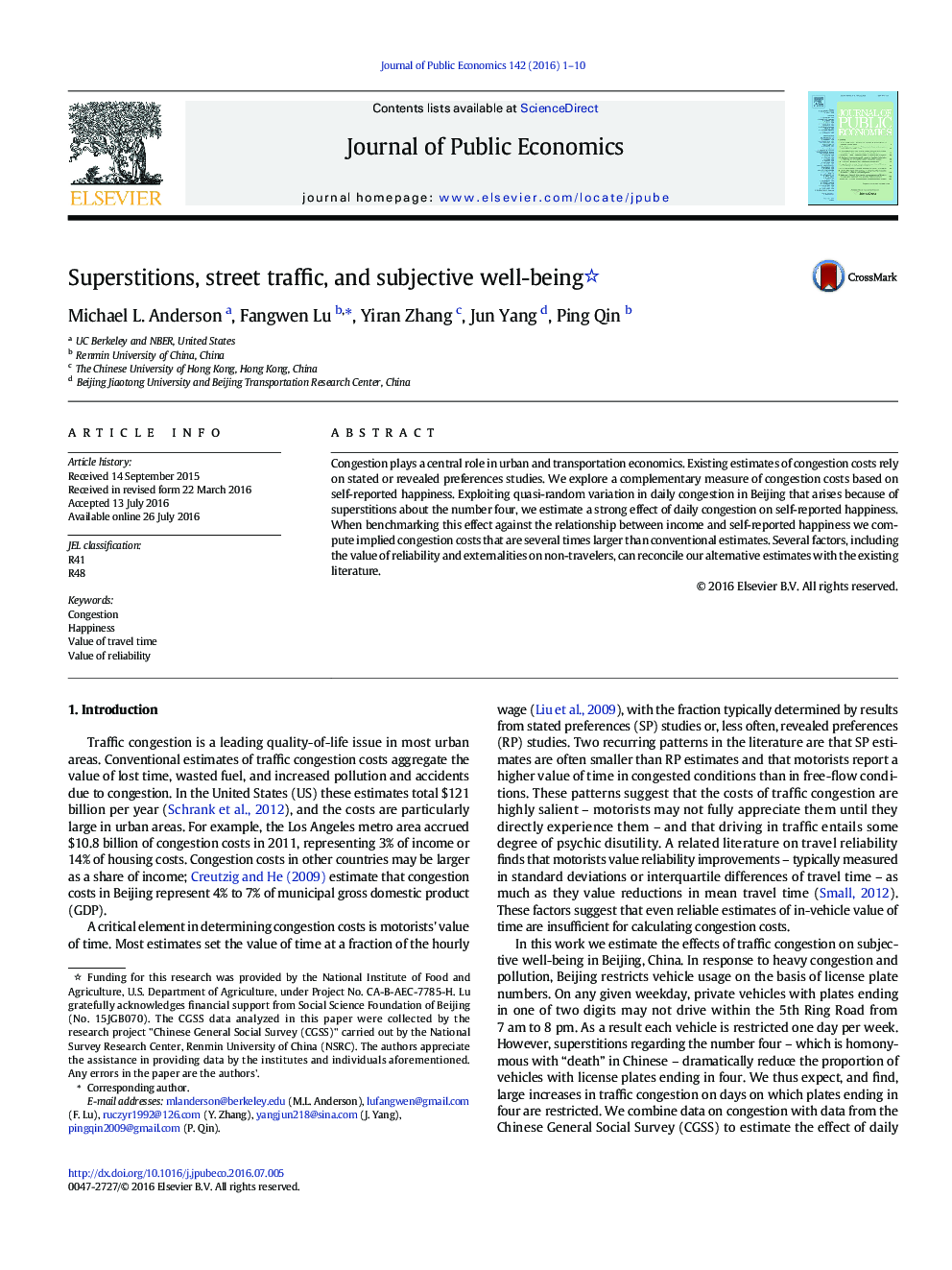| Article ID | Journal | Published Year | Pages | File Type |
|---|---|---|---|---|
| 969642 | Journal of Public Economics | 2016 | 10 Pages |
•Congestion costs are central to urban and transportation economics.•We explore a measure of congestion costs based on self-reported happiness.•We estimate these costs with random variation in traffic from driving restrictions.•We find implied congestion costs several times larger than conventional estimates.
Congestion plays a central role in urban and transportation economics. Existing estimates of congestion costs rely on stated or revealed preferences studies. We explore a complementary measure of congestion costs based on self-reported happiness. Exploiting quasi-random variation in daily congestion in Beijing that arises because of superstitions about the number four, we estimate a strong effect of daily congestion on self-reported happiness. When benchmarking this effect against the relationship between income and self-reported happiness we compute implied congestion costs that are several times larger than conventional estimates. Several factors, including the value of reliability and externalities on non-travelers, can reconcile our alternative estimates with the existing literature.
